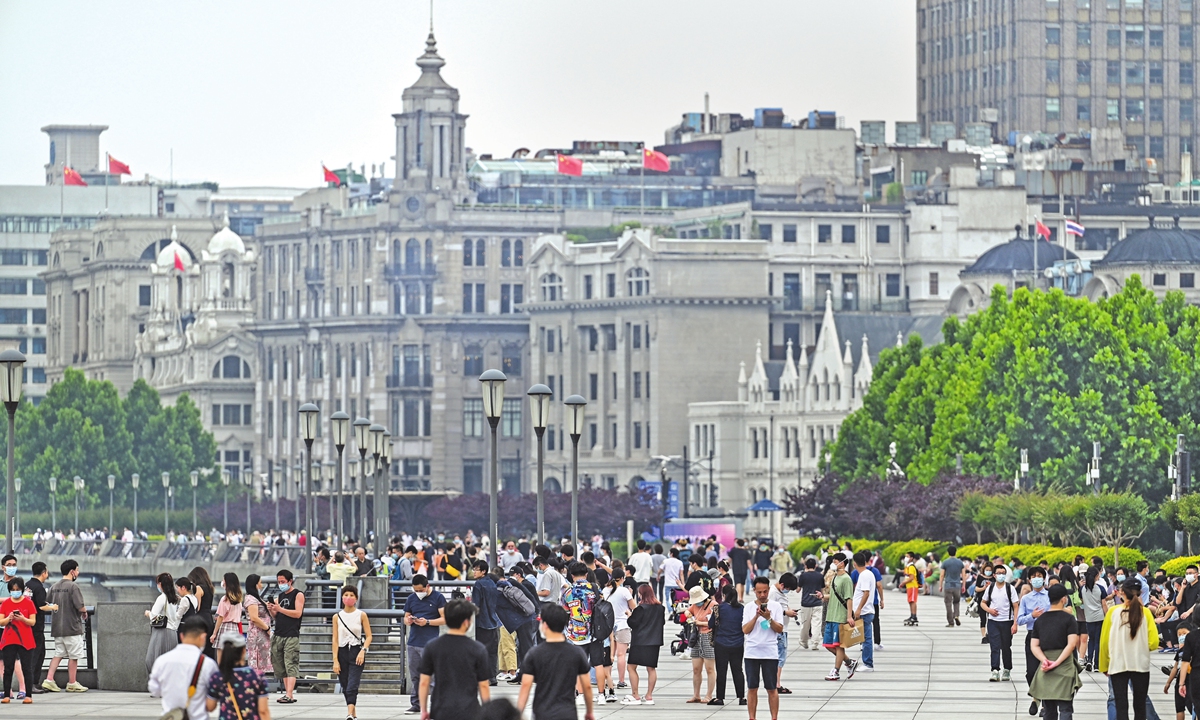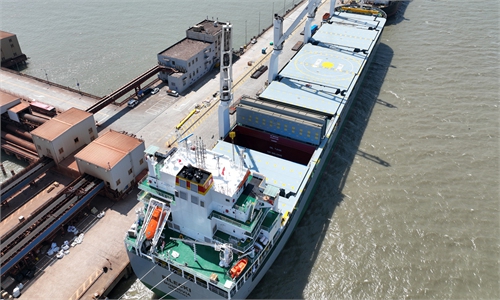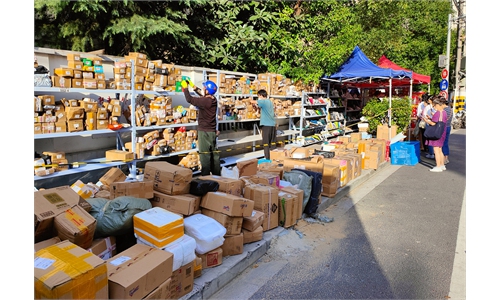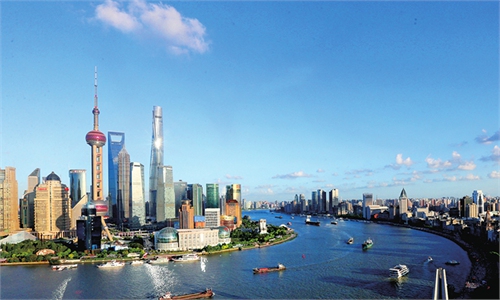Shanghai’s economy contracts in May but decline slows; analysts expect strong rebound in June and second-half of 2022

People gather on the Bund along the Huangpu River in Shanghai on June 1, 2022, following the easing of COVID-19 restrictions in the city after a two-month lockdown. Photo: AFP
Shanghai's economy contracted in May as the fallout of coronavirus epidemic continued to weigh on the city, but the decline of certain key economic indicators slowed down to a large extent, indicating that the key financial and trading center has "endured its darkest hour" and is steadily moving toward a recovery that could pave way for a strong rebound in June and the second-half of 2022.
In May, the industrial output at Shanghai plunged 27.6 percent year-on-year, as the center of China's manufacturing base Yangtze River Delta has been pushing forward with the resumption of work and logistics hurdles removal since late May, according to data released by local statistical bureau on Friday. That compared with a steep drop of 61.5 percent in April, when manufactures were grounded to a halt due to abrupt resurgence of coronavirus cases.
Local retail sales also shrank 36.5 percent compared with a year earlier in May. But that represented a mild improvement from a drop of 48.3 percent in April, when the city was in a mode of "static management" which largely suppressed consumer spending.
In the first five months of 2022, Shanghai's fixed-asset investment slumped 21.2 percent year-on-year, the data showed. From January to April, the rate of decline was registered at 11.3 percent on a yearly basis.
Although Shanghai's economy contracted in May for a second consecutive month, analysts said that the drop of key indexes largely slowed down, indicating the situation at the virus-hit city has been improving as it gradually restores social and economic order.
"Fixed-asset investment only accounted for a small share in Shanghai's GDP. As long as production resumed and logistics supply chains return to normal, it is fair to say that local economy has bounced back to 80 percent of pre-virus levels," Tian Yun, former vice director of the Beijing Economic Operation Association, told the Global Times on Friday. But he added that it will take certain time for consumption to recover.
As for June, economy could gradually stabilize and certain key indicators may "return to positive territory" at the beginning of second-half thanks to wider policies to support factory resumption and accelerate investment, analysts predicted, noting that June may mark a "new start" for the mega city that is home to 25 million peopleafter a near two-month hiatus.
On Thursday, Shanghai hosted a global investment facilitation forum, during which a total of 322 major projects with a value of 565.8 billion yuan ($84.42 billion) were signed. Both the number of projects and the investment amount exceeded last year, which observers said would inject a much-needed boost to stabilize Shanghai's economic fundamentals. Another 48 major projects, totaling 162.7 billion yuan, also started construction the same day.
Shanghai enters the third stage of work resumption from June 1, under which local companies no longer need to be granted permits for factories to reopen their doors. As of June 14, about 96.3 percent of Shanghai enterprises above a designated size have resumed work, and 70 percent of them have reached pre-virus capacity, according to China's Ministry of Industry and Information Technology.
On Thursday, part of Shanghai Disney resort, an iconic tourist attraction in Shanghai, resumed operations, another encouraging sign that the city's vibrancy is gradually returning.
In May, China's overall economy has staged an impressive turnaround. The country's industrial output expanded 0.7 percent year-on-year, while urban fixed-asset investment was up 6.2 percent in the first five months. Retail sales, a main gauge of consumption, contracted 6.7 percent in May, compared with an 11.1 percent fall in April.




